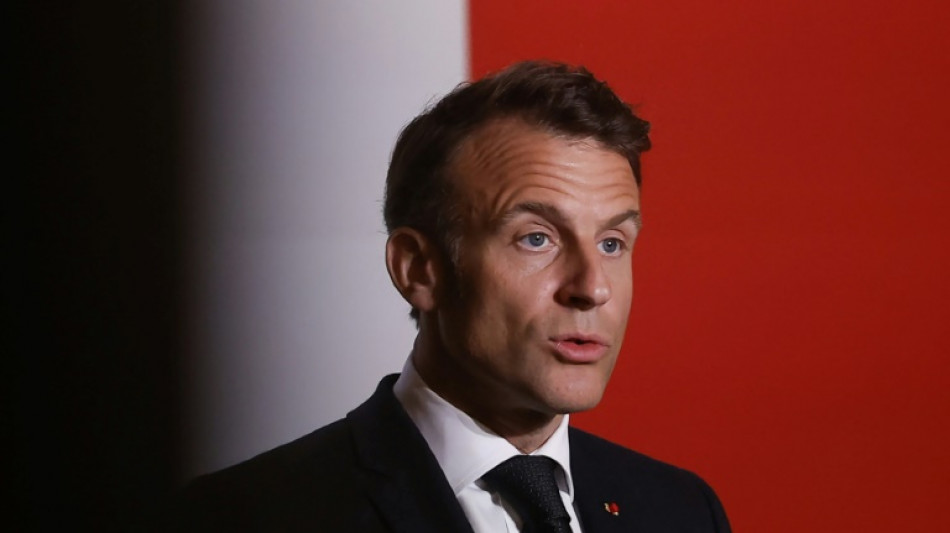
France, EU leaders spearhead effort to lure US scientists

French President Emmanuel Macron and European Commission head Ursula von der Leyen were set on Monday to host a conference in Paris aimed at attracting US researchers ready to relocate because of President Donald Trump's policies.
European commissioners, scientists, academics and ministers for research from European Union member countries will discuss, among other things, financial incentives to lure disgruntled US scientists across the Atlantic.
Paris's Sorbonne University is hosting the conference, called "Choose Europe for Science", which is to close with speeches by Macron and von der Leyen.
Universities and research facilities in the United States have come under increasing political and financial pressure under Trump, including threats of massive federal funding cuts.
US research programmes face closure, tens of thousands of federal workers have been fired and foreign students fear possible deportation for their political views.
The 27-nation EU hopes to offer an alternative for researchers and, by the same token, "defend our strategic interests and promote a universalist vision", an official in Macron's office told AFP.
The French president has already appealed to foreign, notably US, researchers to "choose France".
Last month he unveiled plans for a funding programme to help universities and other research bodies cover the cost of bringing foreign scientists to the country.
- Flood of applicants -
Aix Marseille University in the south of France announced in March it would open its doors to US scientists threatened by cuts.
It says its "Safe Place for Science" scheme has already received a flood of applicants.
Last week, France's flagship scientific research centre, the CNRS, launched a new initiative aimed at attracting foreign researchers whose work is threatened.
It is also seeking to attract French researchers working abroad, some of whom "don't want to live and raise their children in Trump's United States", according to CNRS President Antoine Petit.
An official in Macron's office said Monday's conference came "at a time when academic freedoms are retreating and under threat in a number of cases and Europe is a continent of attractiveness".
One obstacle, experts say is the fact that while EU countries can offer competitive research infrastructure and a high quality of life, research funding and researchers' remuneration both lag far behind US levels.
But CNRS's Petit said last week he hoped that the pay gap would seem less significant once the lower cost of education and health, and more generous social benefits were taken into account.
Macron's office said France and the EU were targeting researchers in a number of specific sectors, including health, climate, biodiversity, artificial intelligence and space.
The French government could finance up to 50 percent of selected research projects, an official in the presidential office said, while assistance could also be offered in the form of tax incentives.
Non-EU members Norway, Britain and Switzerland are participating in Monday's conference, Macron's office said.
E.Cruz--SFF

 London
London

 Manchester
Manchester
 Glasgow
Glasgow
 Dublin
Dublin
 Belfast
Belfast
 Washington
Washington
 Denver
Denver
 Atlanta
Atlanta
 Dallas
Dallas
 Houston Texas
Houston Texas
 New Orleans
New Orleans
 El Paso
El Paso
 Phoenix
Phoenix
 Los Angeles
Los Angeles



